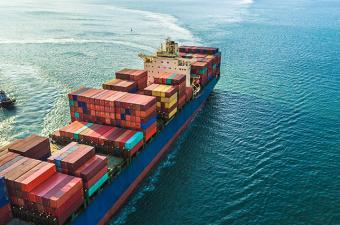
OVERVIEW
Splitt Chartering APS v. Saga Shipholding Norway AS (The “Stema Barge II”) [2021] EWCA CIV 1880
The 1976 Limitation Convention,[1] like the 1957 Convention[2] before it, entitles a ship’s “operator” to limit its liability in the same way as its registered owner. But what does “operator” mean? What characteristics must a party have – and what role must it play in the life of the ship – to qualify as its “operator” under Art 1(2) of the Convention and thereby limit its liability?
Despite its use for more than 60 years in international conventions ratified by over 75 countries, there had been no authority from any jurisdiction on the meaning of “operator” until Teare J’s first instance decision of May 2020 in Splitt Chartering APS v. Saga Shipholding Norway AS (The “Stema Barge II”) [2021] 2 Lloyd’s Rep. 307, which, with respect to the Learned Judge, did not provide any clear guidance on the meaning of that term. Reversing Teare J’s decision below, the Court of Appeal has now provided the required guidance on that question.
The issue in the case was whether Stema UK, an English company within the Mibau group of companies, was entitled to limit its liability under Art 1(2) of the 1976 Convention when the dumb barge, “STEMA BARGE II” (“the Barge”), which had been anchored off Dover, dragged her anchor during a storm and damaged the underwater cable carrying electricity from France to England belonging to the appellant, Réseau de Transport d’Électricité SA (“RTE”). RTE claimed losses of €37 million in respect of the costs of repair and some €17 – 18 million in respect of consequential losses.
Stema UK had bought rock amour from its related Danish company, Stema A/S, which cargo the latter transported from Norway to Dover on the Barge. Stema UK did not own the Barge or have any involvement in its management or operation until it arrived off Dover, at which time it undertook the operations necessary to tranship the rock armour from the Barge directly onto Shakespeare Beach between Dover and Folkestone. Whilst the Barge was at anchor off Dover, Stema UK’s barge masters and crewmembers also attended to further matters set out in check lists prepared by Stema A/S, including ballasting the Barge during discharge operations, maintaining its generators, ensuring that its navigation lights were in order and visually checking its position from shore.
Splitt Chartering APS (the Barge’s owner), Stema A/S and Stema UK commenced a limitation action claiming a decree that each of them was entitled to limit under Art 1(2) of the Convention as the Barge’s owner, operator/manager and operator, respectively. RTE denied Stema UK’s right to limit, arguing that its role whilst the Barge was off Dover was insufficient to make it the Barge’s “operator” within the meaning of Art 1(2).
Teare J rejected RTE’s argument and held that Stema UK was entitled to limit, ruling that it was “the operator of the barge off Dover”. He held that the term “operator” encompassed an “entity which, with the permission of the owner, directs its employees to board the ship and operate her in the ordinary course of the ship’s business”; and that Stema UK could fairly be said to have been the operator of the Barge whilst she was off Dover. In so ruling, the Judge was highly influenced by two matters: the fact that the Barge was unmanned, so that the only crew on board whilst she was off Dover was Stema UK’s crew; and the fact that Stema UK was an associated company of Stema A/S (which RTE accepted was entitled to limit) to which the latter had delegated the operation of the Barge off Dover.
Allowing RTE’s appeal, the Court of Appeal reversed that decision, accepting RTE’s argument that Teare J had interpreted “operator” at too low a level of abstraction and had applied a circular test. It reasoned as follows.
First, adopting the reasoning of the Federal Court of Australia in ASP Ship Management Pty Limited v Administrative Appeals Tribunal [2006] FCAFC 23, the Court noted that “operator” could be used at several levels of abstraction and that a ship is not merely a machine to be worked by a skilled operative, but a working commercial enterprise requiring inter-related operational responsibilities.
Second, it held that “operator” must be considered at a higher level of abstraction than mere physical operation, and had to involve an element of management or control, explaining that such “[m]anagement and control will almost certainly be found in those who direct the on-board personnel (not the Master and crew, as the Judge himself held), being legal persons who are highly unlikely to be on board the vessel.” It concluded that being an “operator” entails more than the mere operation of the machinery of the vessel or the provision of personnel to operate that machinery; instead, it requires management or control of the vessel, as otherwise Art 1(4) would be rendered otiose and categories of service providers would be included despite the express intention of the contracting parties as revealed in the travaux préparatoires not to include them.
It followed, the Court emphasised, that the mere provision of the crew for a vessel does not mean the vessel is operated by the provider.
Finally, the Court held that the Judge was wrong to have been influenced by the fact that Stema UK was an associated company of Stema A/S, as the Convention gave no preference to associated companies.
The Court therefore reversed Teare J’s decision and held that Stema UK was not entitled to limit its liability under the 1976 Convention.
This decision is to be welcomed as it provides much-needed clarity on the meaning of “operator” in the 1976 Convention and gives effect to the contracting parties’ clear intention in the travaux préparatoires to the Convention to limit the category of persons entitled to limit and exclude those who merely assist another in the operation, management or navigation of a vessel from the right to limit. It is now clear that only those involved in the management and control of the vessel - ie "operation" at the higher level of abstraction - will be entitled to limit; and those who merely assist another in operating the machinery of a vessel or provide the crew for a vessel will not be entitled to limit.
Chirag Karia QC of Quadrant Chambers (instructed by Alex Kemp, Partner, and Jenny Salmon, Senior Associate, of HFW LLP) acted for the successful Appellant, RTE.
[1] The Convention on Limitation of Liability for Maritime Claims 1976 annexed at Schedule 7 to the Merchant Shipping Act 1995 and given the force of law by section 185 of that Act.
[2] International Convention Relating to the Limitation of the Liability of Owners of Sea-Going ships dated 10 October 1957.

